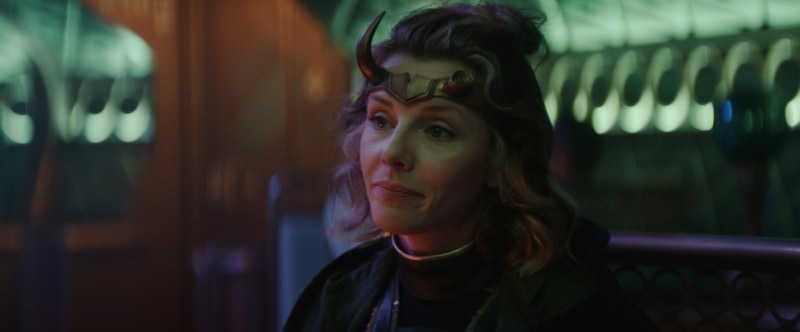#‘A Brighter Tomorrow’ Review: Nanni Moretti Gets Nostalgic About Cinema, Politics and Himself in a Meta-Memoir Strictly for Fans

Table of Contents
The captivating opening sequence of Nanni Moretti’s A Brighter Tomorrow (Il Sol dell’Avvenire) watches as a dusty old Fiat passes Castel Sant’Angelo in Rome and pulls up next to the Tiber. A man with a can of red paint and a rope steps out and scoots halfway down the stone wall that hugs the riverbank, neatly painting the words of the title. The whimsical music instantly alludes to Fellini, an homage confirmed soon after by the arrival in town of a Hungarian circus, and for all intents and purposes, the film is Moretti’s Otto e mezzo. Or at least it wants to be.
More than 20 years after winning the Palme d’Or with his shattering grief drama The Son’s Room, Moretti is back with his 14th feature for his regular appointment with Cannes. But after decades of wildly varying success attempting to stretch beyond his signature auto-fictions, the director reverts to the mordant memoir style of the film that first brought him to the French festival in 1993, Dear Diary.
A Brighter Tomorrow
The Bottom Line
Moretti’s answer to ‘8½,’ for better or worse.
Your mileage with this throwback will depend on your mileage with Moretti himself. Going by his birth name, Giovanni, he revives his pedantic screen persona — an obsessive film director depicted with equal parts narcissism and self-mockery — which will be a welcome blast from the past for his most ardent longtime admirers. That’s certainly been the case in Italy, where the film has done strong business at a time when the post-pandemic box office is still struggling to find its feet. The less devoted might find the meta-comedy a tired retread, prompting more eyerolls than laughs.
That Budapest circus is central to the plot of the film within the film that Giovanni is in the midst of directing, a rueful period piece about the failure of the Italian Communist Party in the mid-1950s to detach from Soviet hegemony after Russia invaded Hungary. Complete with big top tent, animals, clowns and acrobats, the troupe was invited to Rome by a party branch in the working-class Quarticciolo district, run by Ennio (Silvio Orlando), an editor at Communist broadsheet l’Unità, and his seamstress deputy, Vera (Barbara Bobulova).
Just as that scenario is taking shape, Moretti’s voice is heard in the present day, impatiently explaining the history of Italy’s Communist Party — more likely to be called Democratic Socialism these days — to the film’s cast and crew, some of whom are too young to get it.
Giovanni’s wife of 40 years, Paola (Margherita Buy), is producing, though for the first time in her career she’s simultaneously producing the work of another director, a young rising star making a pulpy crime thriller, financed by Koreans.
That provides a platform for Moretti to interrupt the shoot, causing Paola — and possibly much of the audience — to cringe while he delivers a moralistic sermon about meaningless violence supplanting the cinema of ideas.
In a device that probably owes something to Woody Allen consulting Marshall McLuhan in Annie Hall, Giovanni seeks backup in every disagreement from distinguished friends like architect Renzo Piano, veteran journalist Corrado Augius and author Chiara Valerio, though he can’t reach Martin Scorsese.
Giovanni’s film is financed by exuberant Frenchman Pierre (Mathieu Amalric), who gets to tool around Rome with the director on electric scooters, upgraded from the moped of Dear Diary.
Rather than keep a tight focus on the shoot, Giovanni gets preoccupied by countless other concerns. He has a pre-production ritual of watching Jacques Demy’s Lola while eating the same dessert each time with his wife and daughter, Emma (Valentina Romani). But they both bow out even before the movie starts. With a foot fixation to rival Tarantino, he bristles at an actress wearing mules, a pet peeve, to the set, and flinches every time the woman playing Vera dares to improvise, tweaking his dialogue.
Despite his track record of making a film every five years, Giovanni is also mulling over two other projects — an adaptation of John Cheever’s The Swimmer and a two-decade love story. The latter gets undermined by real life when Paola finally asks for a divorce she’s been planning for some time. Giovanni is a man who eats up all the oxygen in the room, so even finding the right moment to bring up the subject has been a challenge for his wife.
In most films, this would introduce a vein of sadness, and there’s a lovely scene in which Giovanni feeds dialogue to a young woman conjured out of his imagination, having an argument with her boyfriend. But Moretti has pretty much never played anything but Moretti and poignant nuances generally are not within his range. Giovanni’s self-absorption makes it seem as if everything bothers him but nothing touches him, and without inbuilt affection for Moretti’s work, that makes him kind of a talky bore to be around.
I can’t say what I found more tiresome — his shouty declamatory line readings or his breaking into song and even dance as the film becomes a quasi-musical. It lifts vintage tracks by Franco Battiato, Fabrizio De André and Luigi Tenco, as well as a more recent hit by Noemi that begins with Giovanni singing along to the car radio until he arrives on set and the entire cast and crew join in. Unfortunately, moments like those come off more self-consciously cutesy than infectious. And you do not want to see rhythm-challenged Moretti bopping along to Aretha Franklin singing “Think.”
When the production’s financing drops out, Giovanni goes into crisis mode, seeking desperate fixes like a Netflix meeting in an amusing scene that takes broad — and probably not completely inaccurate — swipes at the algorithmic approach to making movies in the streaming age.
The funding hiccup eventually gets resolved by improbable means, but Giovanni is gripped by indecision, changing his mind repeatedly about the bleak ending for the Ennio character and for any faith in the party to stay on the right side of history.
Moretti ultimately rewrites that history, choosing joy and unity over despair, and celebrating an alternate outcome while also giving an affectionate nod back over his own filmography by mixing familiar faces from past work in with the finale’s jubilant crowd.
There’s an undeniable sweetness to touches like that, along with the presence of key returning players like Buy and Orlando. But the film’s wistful hope for the future of cinema and its healing power ends up being too self-satisfied to register as an expression of collective faith.
If you liked the article, do not forget to share it with your friends. Follow us on Google News too, click on the star and choose us from your favorites.
For forums sites go to Forum.BuradaBiliyorum.Com
If you want to read more Like this articles, you can visit our Social Media category.




